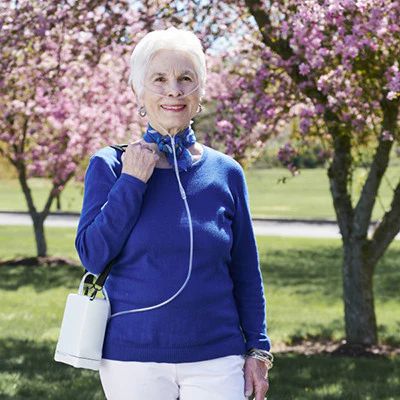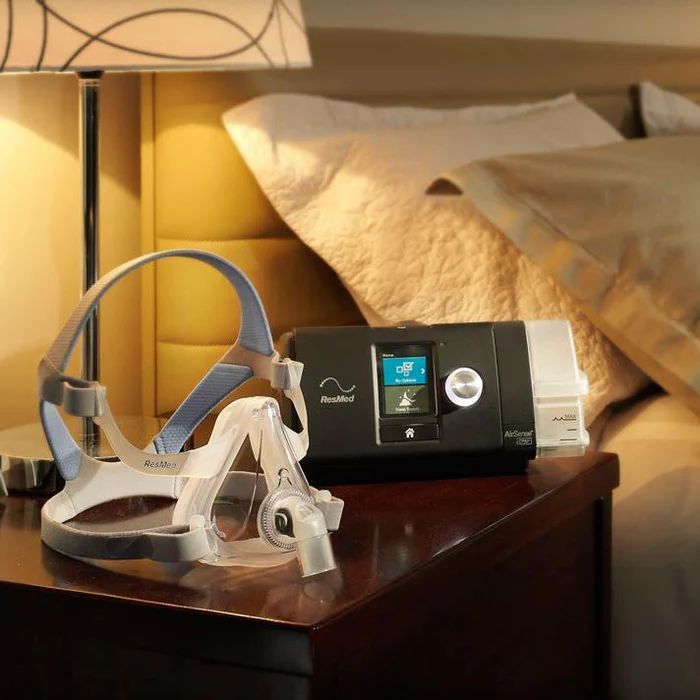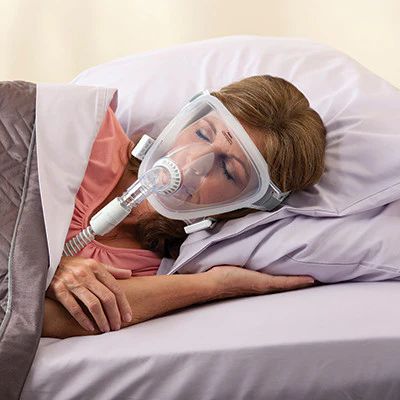Ongoing research is investigating whether certain individual characteristics like a person’s age, sex, body size and the shape of their face and nose can influence which type of mask a person should use.
As you work with your health care provider and review your options, there are some questions that may be helpful to consider in selecting your mask:
- Do you have facial hair?
- Do you mostly breathe through your mouth while sleeping?
- Do you sleep in different positions?
- Are you claustrophobic?
- What activities do you typically do before sleep?
- Is physical intimacy important to you and your partner before sleep?
The number one reason CPAP patients stop using their machine is because of a poor fitting mask. And no one mask fits every face. Thankfully, there are hundreds of options to choose from.
CPAP Mask Types:
Nasal Masks
Nasal masks are designed to deliver pressurized air through the nose. There are two main types of nasal masks. One covers the entire nose with a frame that sits on the bridge of the nose and the upper lip. The other sits only on the upper lip with prongs that go directly into the nostrils. Both types are anchored to the face with a strap that attaches behind the head.
Compared to other types of CPAP masks, nasal masks offer several advantages, including:
- Generally more comfortable
- Fewer air leak issues
- Lower pressure required from CPAP machine
- Longer periods of use
- Less costly
Nasal masks aren’t the best option for some people. In particular, those who breath mainly through their mouth are also less likely to benefit from a nasal mask. Additionally, having a mustache can interfere with the fit of the mask, causing air leakage. Nasal masks may also be especially uncomfortable for people who experience claustrophobia.
Nasal Pillows
Nasal pillows may be a more comfortable alternative to nasal masks. Some people find nasal masks uncomfortable if the prongs go deep into the nose or if the mask puts too much pressure on the bridge of the nose. In contrast, nasal pillows use soft rubber cones that seal at the entrance to the nostril and reduce the pressure on the nose.
Nasal pillows may be a better option for some people, including:
- People who have facial hair
- People who enjoy doing leisure activities in bed such as reading or watching TV
- People who experience claustrophobia
- People who want something easy to take on and off
- People who sleep on their side
Nasal pillows have shown to be equally as effective as other nasal masks in delivering CPAP therapy.
Full Face Masks
Full Face masks deliver air through the nose and the mouth at the same time. They may be a helpful option for people who experience “mouth leaks” while using nasal or nasal pillow CPAP masks. Mouth leaks occur when the pressurized air from the CPAP machines escapes through the mouth.
Compared to nasal masks, full face masks have been shown to reduce mouth leaks. However, some may be considered less comfortable, which may lead some people to take the mask off during the night or avoid using it altogether on some nights. Full face mask design has improved dramatically over the past 3 years and many new options eliminate the "claustrophic" effect the older models produced.
The overall effectiveness and benefits of CPAP therapy for those who use full face masks appear to be similar to those who use nasal masks.





